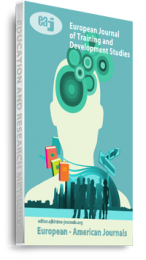This paper is an excerpt of my dissertation whose purpose was to explore the relationships among spirituality, work conditions, and job satisfaction of extension studies personnel in Kenya’s Christian higher education. The study employed a mixed method approach to answer questions on the perceptions of administrators and faculty of extension studies of the impact of spirituality and work conditions on their job satisfaction. This paper therefore sought to establish the extent to which those perceptions are impacted by the personnel’s sense of burnout? Further the author relates the burnout effect of administrators and faculty workers to job satisfaction based on a number of burnout sub scales, among them; Emotional Exhaustion, Depersonalization and Personal Accomplishment. Data was collected, using a survey instrument, from 146 administrators and faculty of extension studies from 6 selected Christian universities in Kenya. Statistical tests carried out using the Statistical Package for the Social Sciences (SPSS), included ANOVA/Kruskall Wallis, Tukey HSD/Mann-Whiteny U, t test, univariate, and regression analysis. The findings from descriptive statistics indicated that extension studies personnel had somewhat high levels of emotional burnout and depersonalization. However, they had scored high on personal accomplishment at their work. Administration faculty had higher mean ranks of burnout (U = 672.00, z = -2.48, p < .017, r = -.26) compared to their counterparts who had no administrative duties. However, the effect size was small. The results also indicated that global job satisfaction was more significantly and negatively correlated to emotional exhaustion (r2 = .13) than to depersonalization (r2 = .04), but was positively correlated to personal accomplishment (r2 = .08). Similarly, work satisfaction was more significantly and negatively related to emotional exhaustion (r2 = .10) than to depersonalization (r2 = .08), but was positively correlated to personal accomplishment (r2 = .03). Satisfaction with salary, coworkers, and supervisors were all significantly and negatively related to emotional exhaustion (r2 = .07, r2 = .09, and r2 = .04 respectively). These findings are important for both personnel and stakeholders of higher education institutions’ in burnout prevention and enhancement of job satisfaction.
Keywords: Burn Out, Christian Higher Education Institutions., Extension Studies Personnel, Job Satisfaction

